A Hot Night on the Nile
/By Truman C. Wang
6/2/2022
Photo credit: Cory Weaver / L.A. Opera
This hot new production of Aida, shared by L.A., D.C., SF, Seattle and Minnesota, was delayed by the 2021 pandemic, but made its triumphant debut on the Dorothy Chandler Pavilion stage last week. Stage director Francesca Zambello teamed up with the L.A. street artist RETNA to create a striking modern backdrop for Verdi’s perennial favorite. The Egyptian hieroglyphics and graffiti on the sets are suggestive rather than literal. At best, they look like David Hockney’s fantastical painterly backdrop for Turandot. At worse, in the Act 2 Triumphant Scene, the brightly-lit backdrop resembles a posh handbag boutique at the South Coast Plaza.
And there are the dancers, both adults and children, not of the Egyptian variety, more like the Shen Yun dance troupe or the street urchins from Carmen. Regardless, they are vastly entertaining to watch.
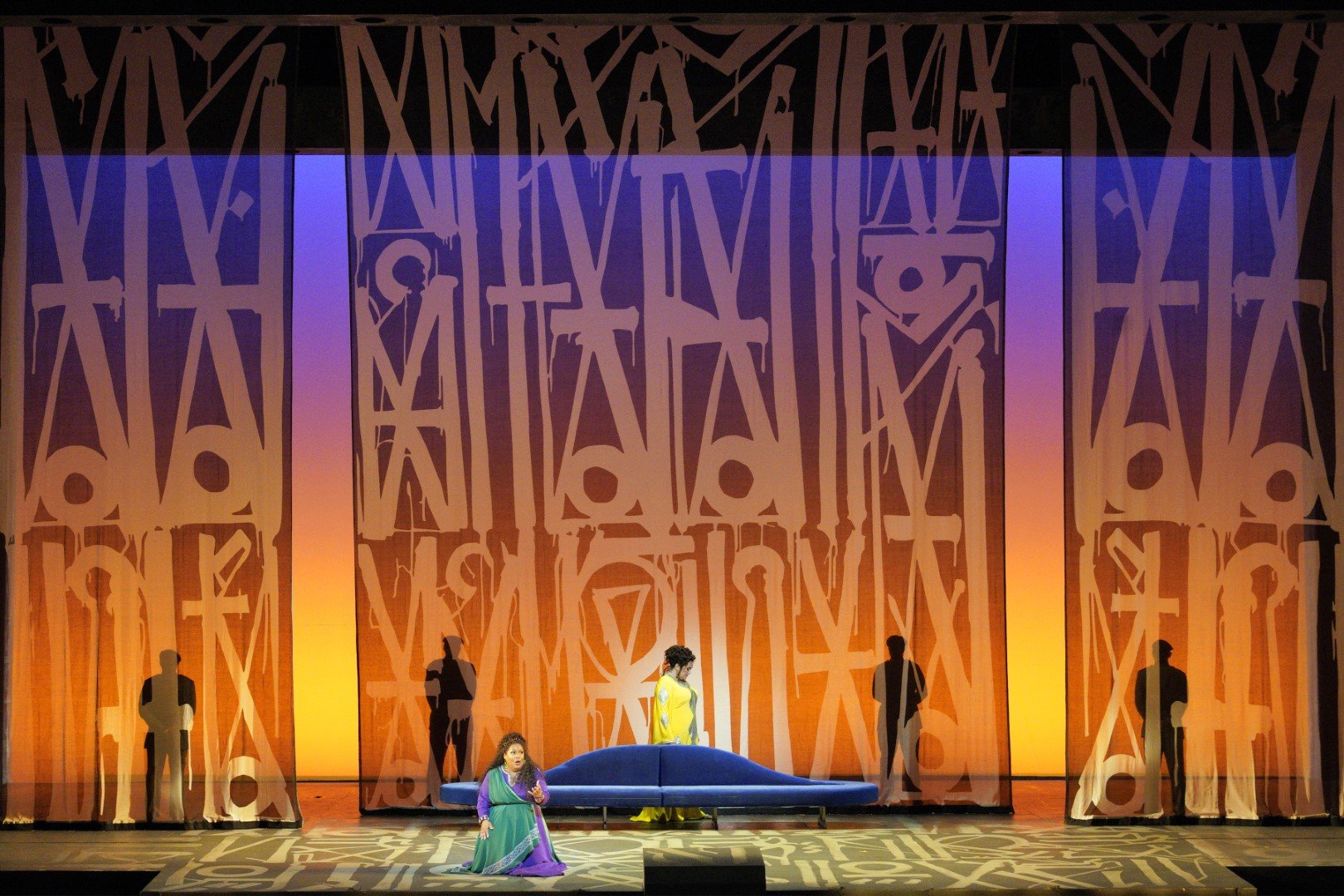
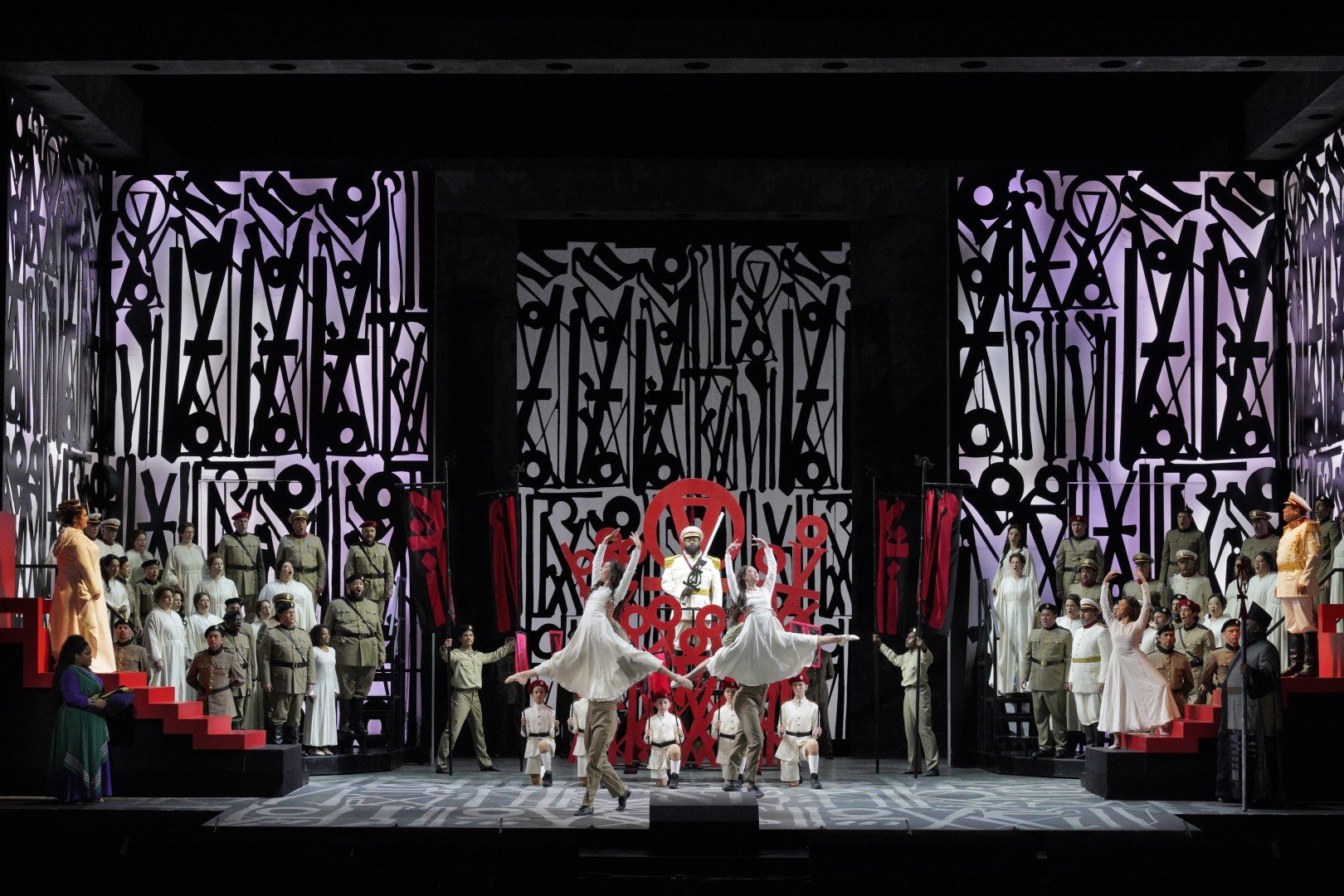
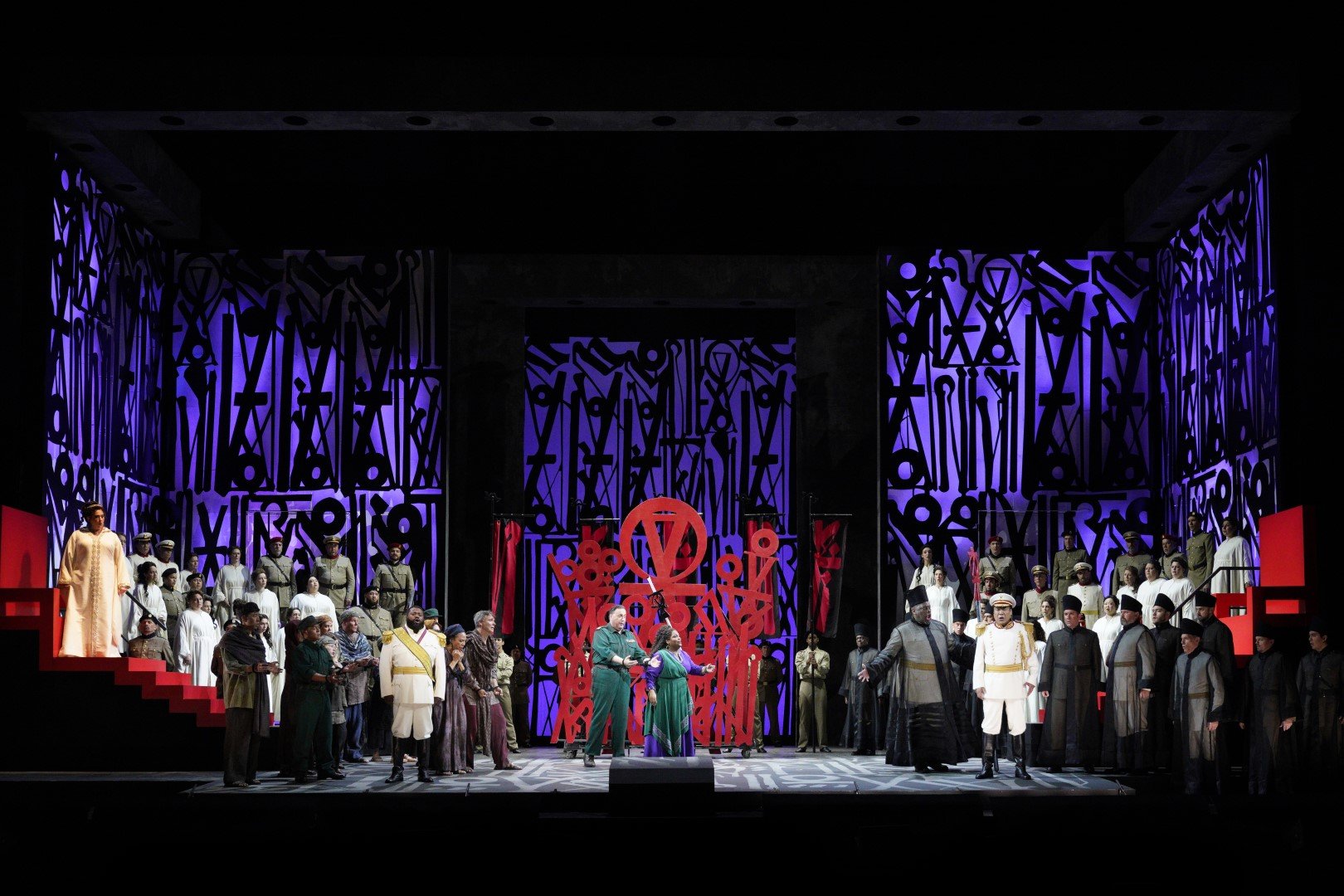
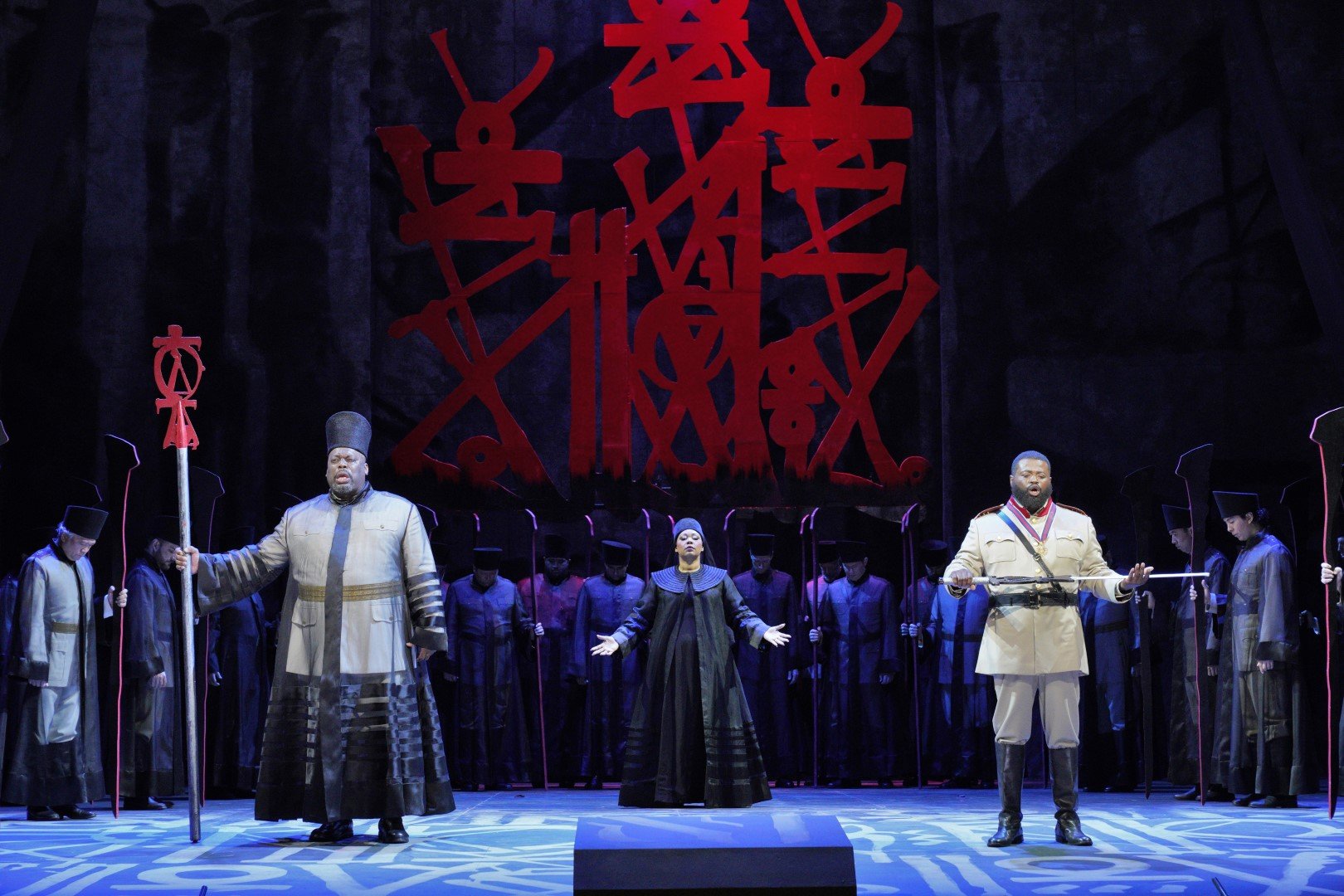
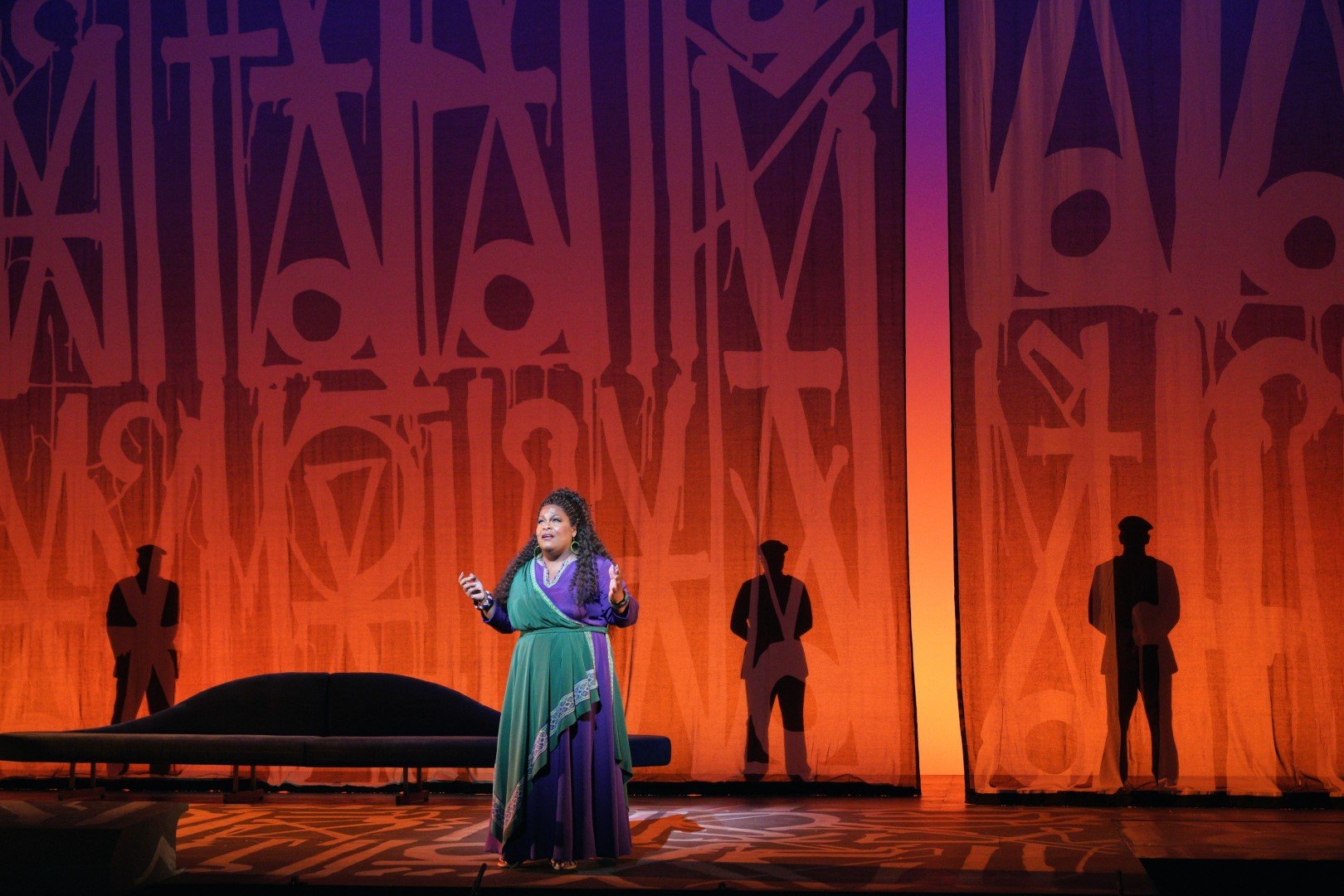
The last Aida on this stage, directed by Placido Domingo in 2005, was theatrically conservative, but enjoyed a splendid cast – Michele Crider, Irina Mishura, Franco Farina (Domingo knew his singers!) Fast-forward to 2022, L.A. Opera again assembled a powerful cast, clad in Anita Yavich’s sumptuous colorful costumes. In the many duets and ensembles, the singers often ignite and set each other alight.
The flame burns the brightest with the Radames of tenor Russell Thomas, who combines elegance with fire, in phrasing and in control of dynamics. Less so is Latonia Moore’s Aida, whose sizeable spinto voice excites early on but falters later in “O Patria mia” and “O terra addio”, missing the requisite pianissimo high notes and long legato line. The rest of the cast are all uniformly topnotch: Melody Moore’s powerhouse Amneris, George Gagnidze’s fiery Amonastro, Morris Robinson’s ‘bloodthirsty Priest’ Ramfis (Verdi hated priests), Peixin Chen’s noble King of Egypt. Alaysha Fox and Anthony Ciaramitaro stand out in minor roles of the Priestess and Messenger, respectively.
The L.A. Opera Chorus shows an impressive range, in the bucolic women’s chorus, as captured slaves meekly pleading for mercy, or as Egyptian victors in the stirring Triumphant March.
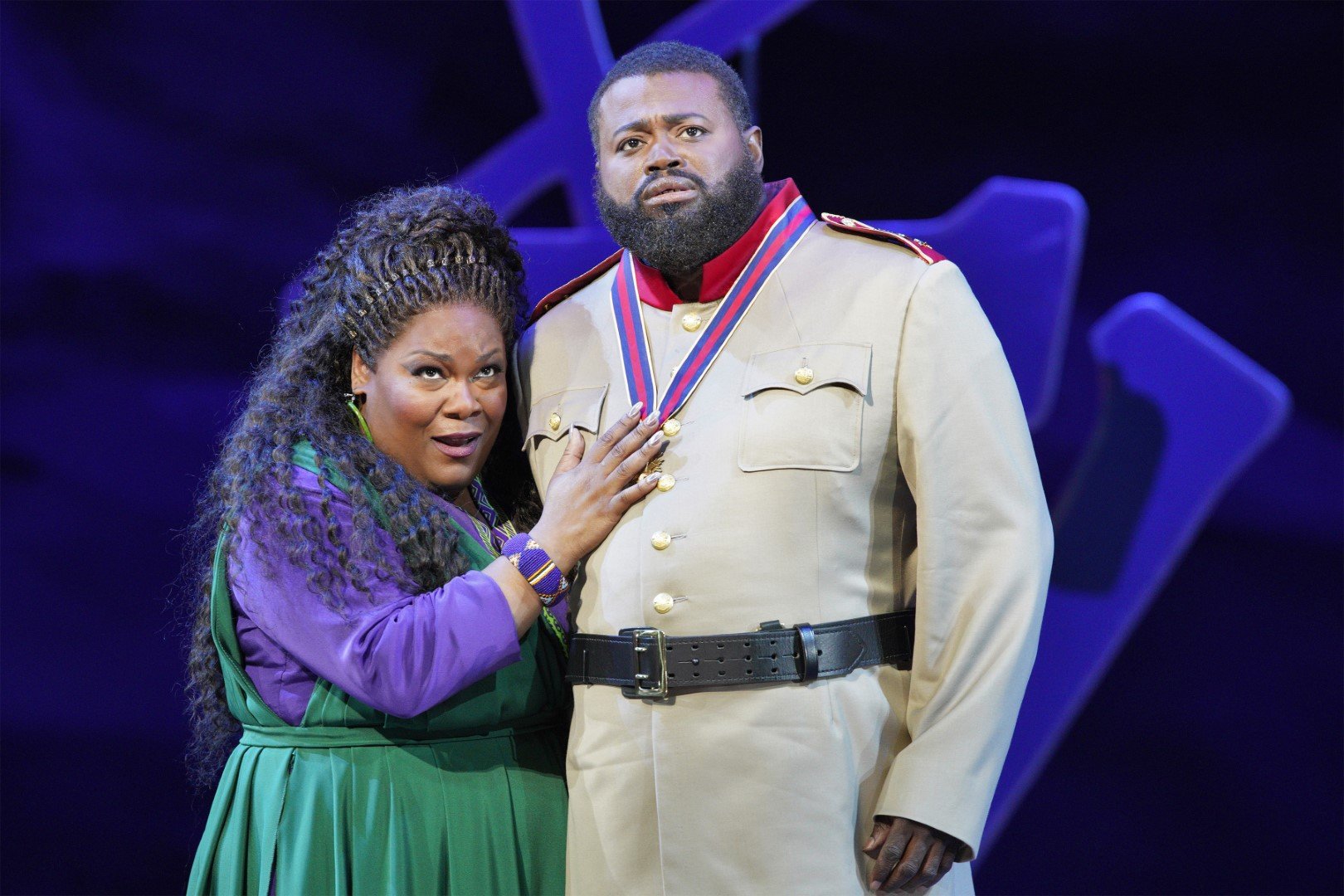

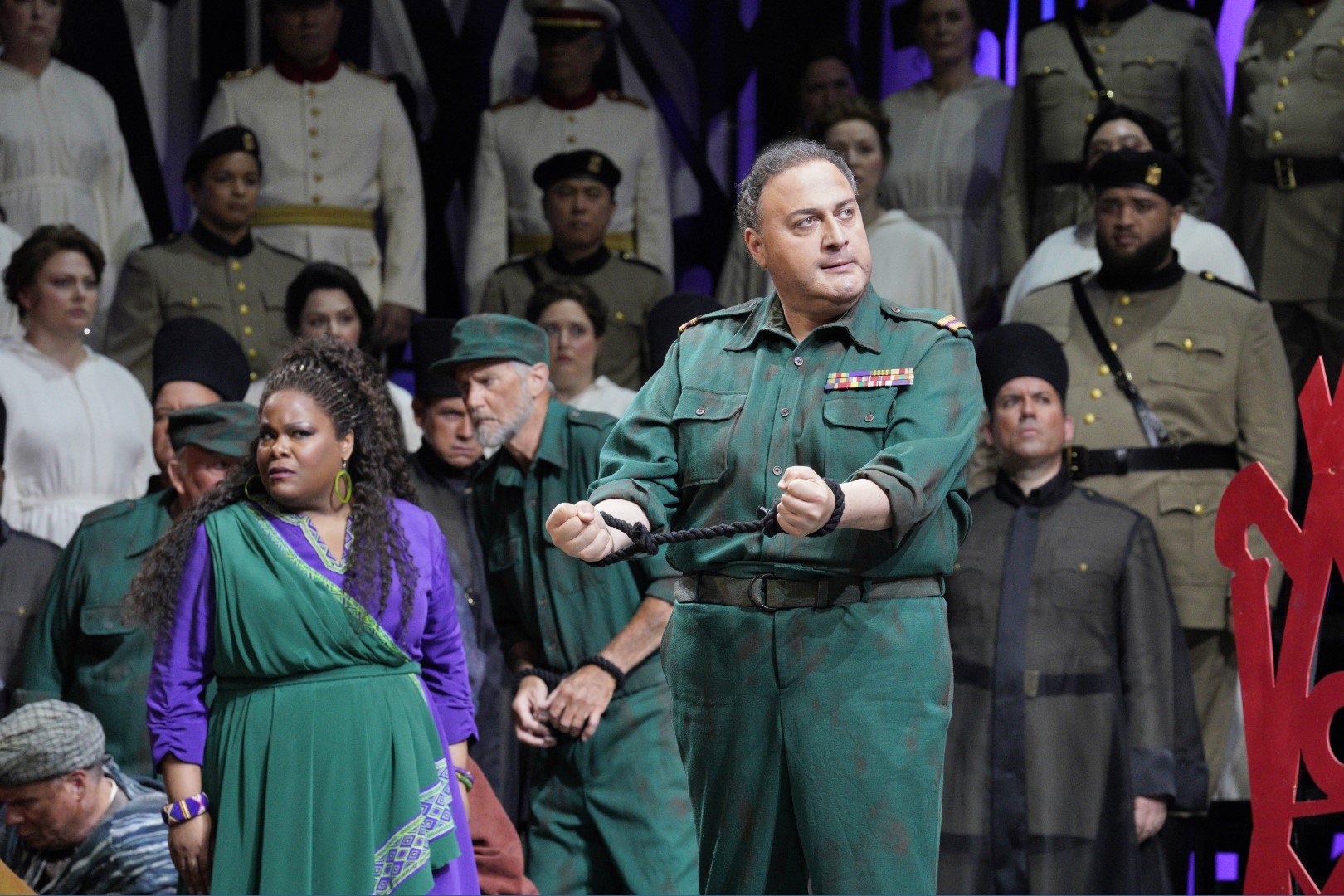
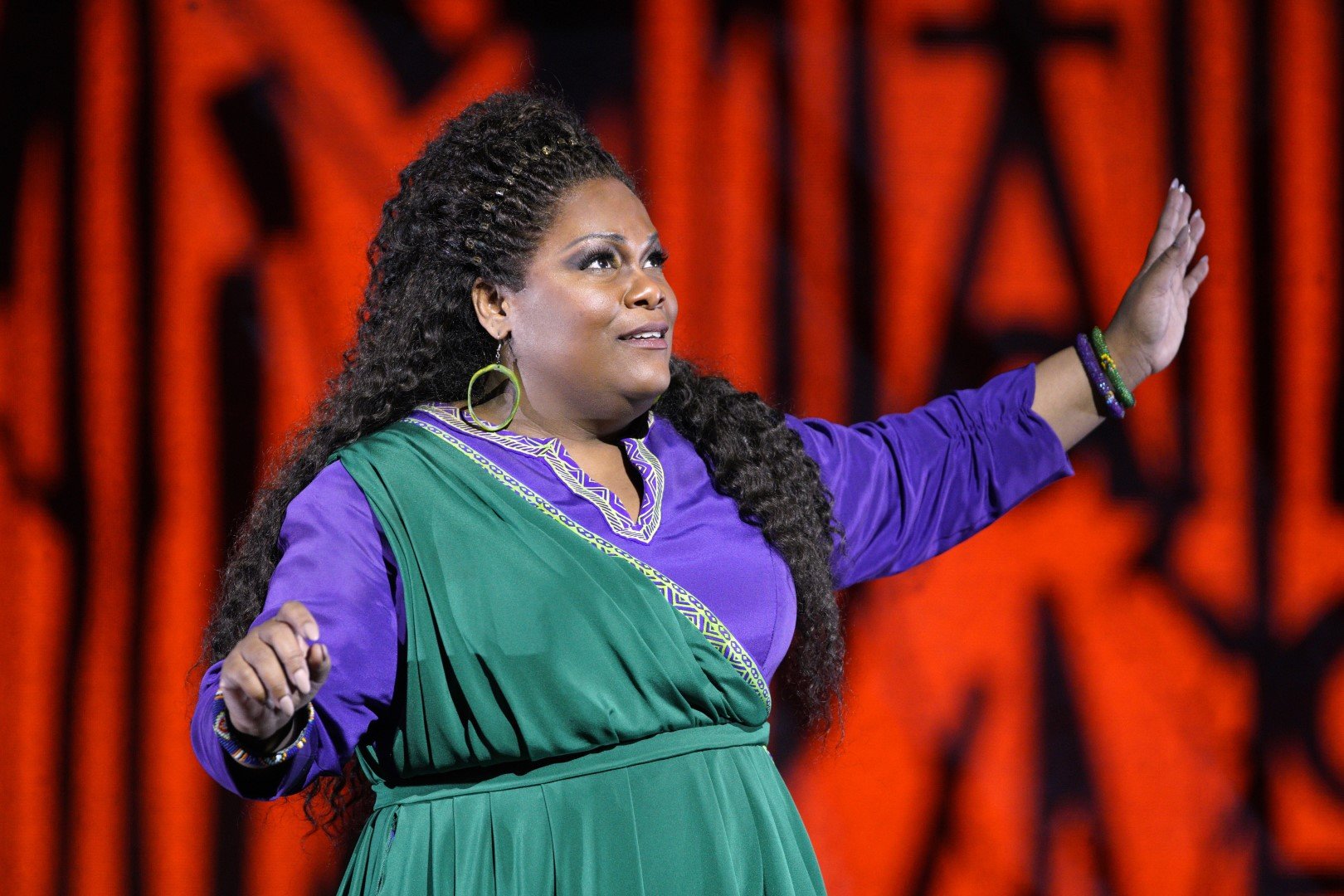
L.A. Opera’s Music Director James Conlon is such a good singers’ conductor that he sometimes indulges his singers at the expense of drama. In Act 3, the excited anticipation of Radames and Aida’s reunion falls completely flat because the orchestra fails to unleash frisson in those all-important pounding chords at Radames’ entrance. Fortunately, this is an exception rather than the rule. Elsewhere in the opera, the orchestral playing ranges from brilliant to inspired, with many outstanding solo turns for the oboe, bassoon and, of course, the trumpets!
Three more performances remain, on June 4, 9 and 12. The June 4 performance will be simulcast to Santa Clarita's Newhall Park, Fairplex in Pomona, and the Santa Monica Pier.
Truman C. Wang is Editor-in-Chief of Classical Voice, whose articles have appeared in the Pasadena Star-News, San Gabriel Valley Tribune, other Southern California publications, as well as the Hawaiian Chinese Daily. He studied Integrative Biology and Music at U.C. Berkeley.

